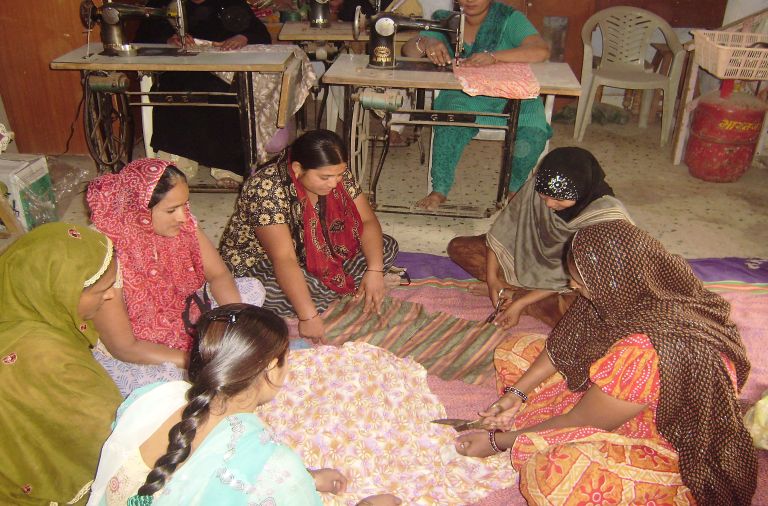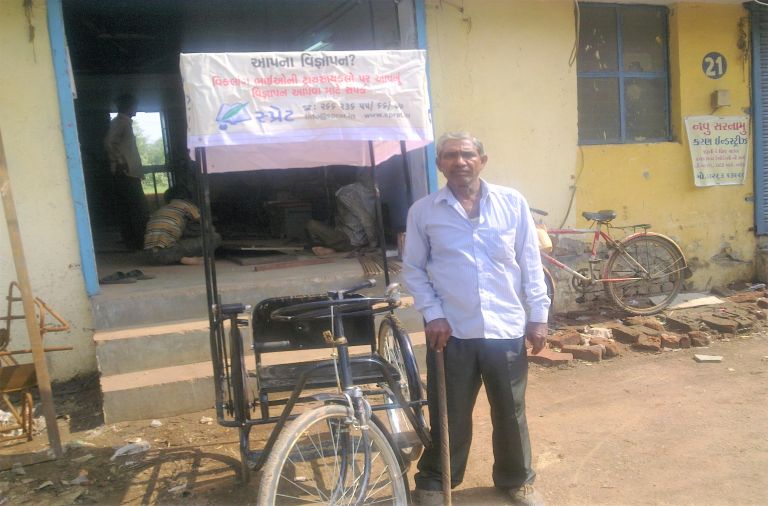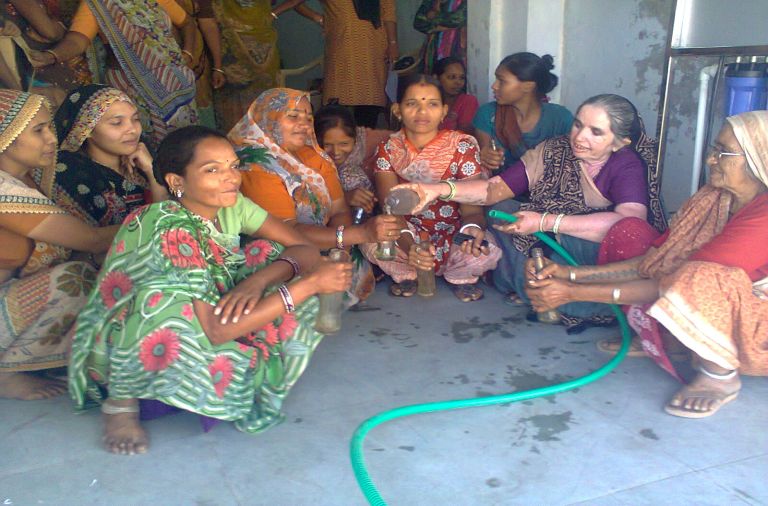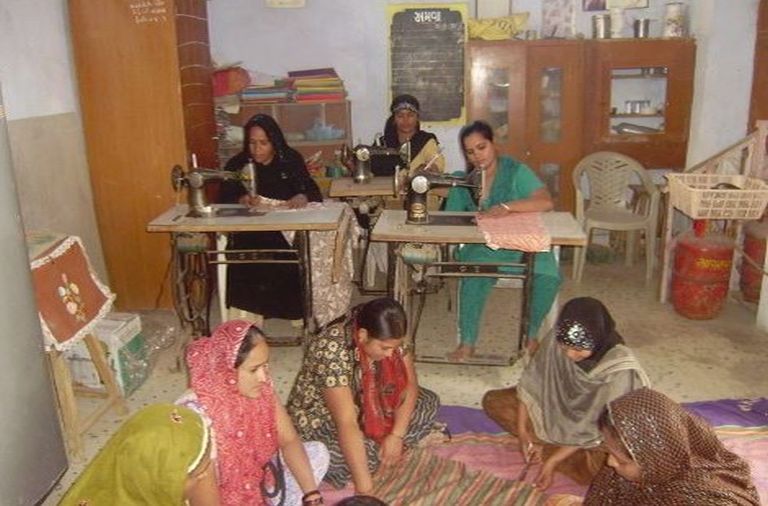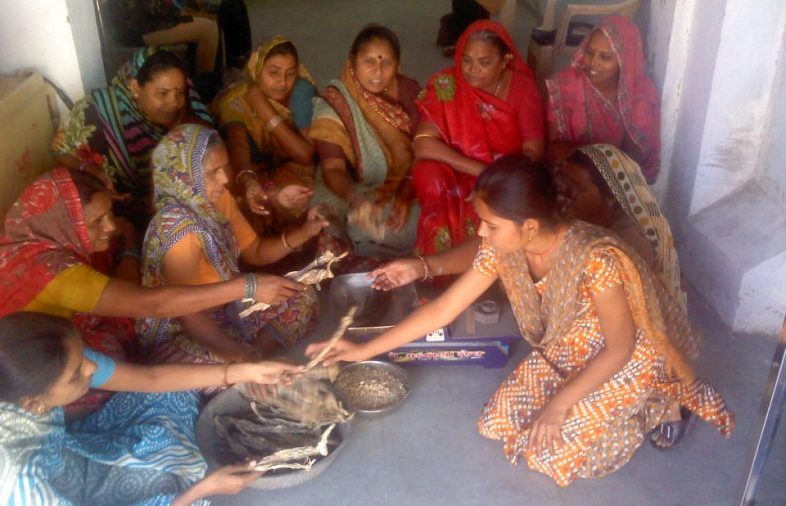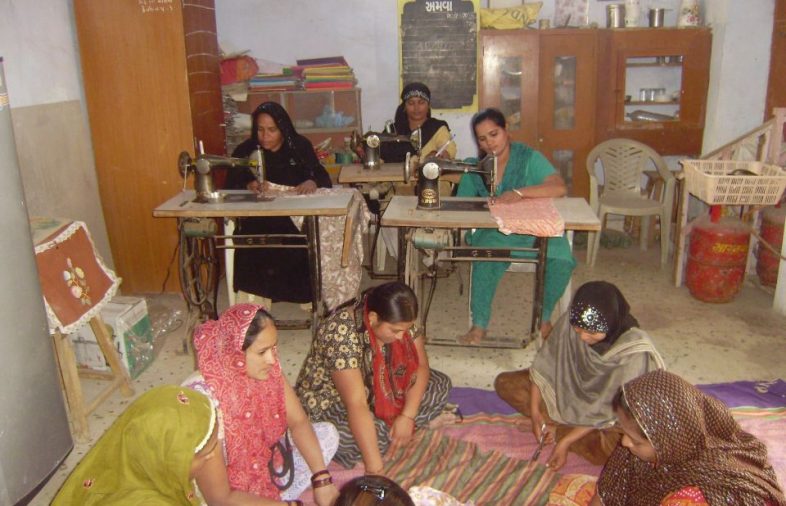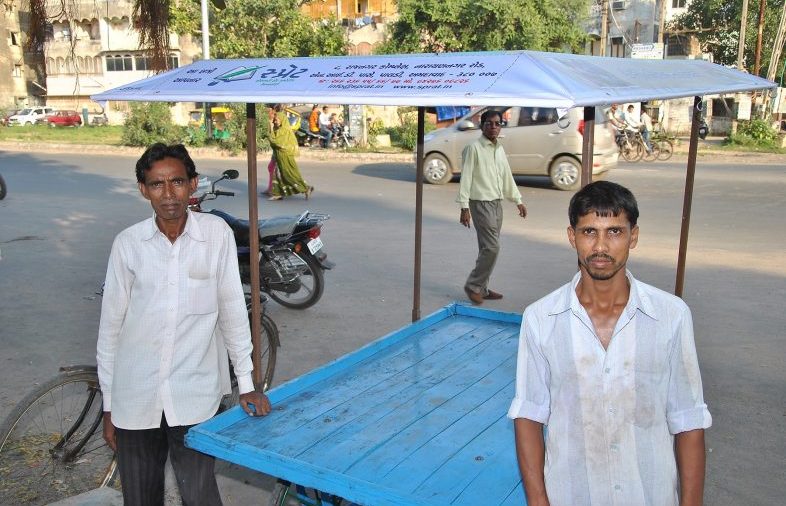INTRODUCTION
Azmat, which literally translates to glory whrough achievement, is one of SPRAT’s programs in which Azmat centres endeavour to engage the poor in productive activities through SPRAT-assisted micro economic enterprises.
Run on the principle of cooperation and self-help, these projects will be born out of participants’ interest at CARAVAN’s exposure workshops but will be promoted and monitored by the projects wing of SPRAT.
Typically each AZMAT centre provides sustainable and enduring employment to 10-30 persons, largely women, earning a daily wage of around Rs. 30 to 50 for up to six-hour work a day. This wage is lower than the statutory minimum wage but as the workers are also co-owners, this shouldn’t bother.
It is envisaged to use this forum to initiate many reforms smoothly. For instance a nutrient mid-day meal or an adult literacy class (Taleem) may be introduced in the group.
Efforts are made to encourage cross-religious membership from the neighbourhood to promote communal harmony. As far as possible the ward of the existing members is being involved with various activities of the group.
CODE OF CONDUCT
BENEFICIARIES
PURPOSE
Azmat is formed on the base of the aim to equip potential workers with adequate skills, provide them with basic techno-managerial inputs and starting credit to start small self-sustainable, viable units harnessing locally available raw material and exploring easily accessible markets.
The units guarantee a small daily wage even while promoting workers to entrepreneurs.
Additionally, AZMAT centres provide supra-religious platforms on which people can interact with fellow entrepreneurs, creating an alternative, secular frame of reference and identities.
To kick off this program, SPRAT had teamed up with Self-Employed Women’s Association (SEWA) to assist vendors, cleaners, and artisans in their Azmat entrepreneurships.
SELF HELP GROUP
AZMAT centres were started by a group of connected persons, ideally residing close to one another, who showed common interest in an employment avenue. After assessment by SPRAT, they were given assistance and training from local institutions in their desired field of work.
This assistance concentrated on technical training as well as assistance in operation of production machinery. Additionally, SPRAT connected groups with sources of funding (local organizations and foundations) who were able to provide soft loans to AZMAT groups such that they could purchase initial materials and machinery, as well as a small working area.
While these loans were repaid through product sales income, the group members received a daily wage, and after full repayment the members were the sole owners of the operation.
Additionally, the group was managed by its own committee comprised of group members and one SPRAT official (required only until the loan was repaid). If needed, SPRAT would provide administrative and accounting support to the group.
Some examples of AZMAT group professions include bone and leather-based cottage industries, toy making, book binding, food article processing, and similar cottage industries requiring little machinery, little education requirements, and simple, accessible technical skills.


